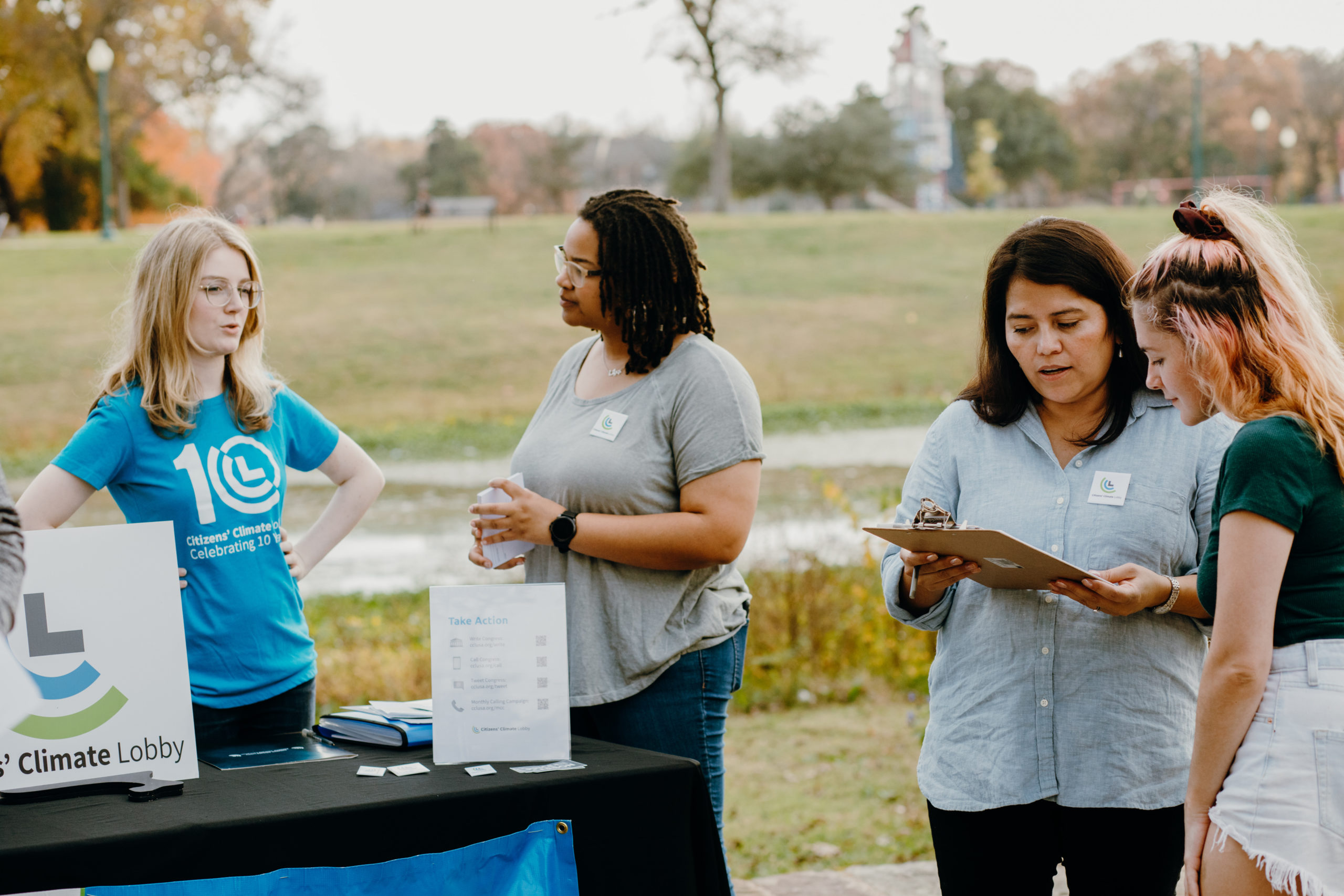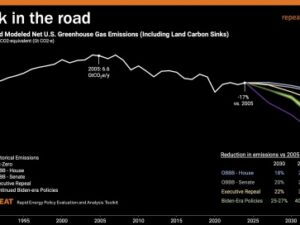Environmental justice concerns about the Inflation Reduction Act
By Tony Sirna, Karina Ramirez, and Steffanie Munguia
While many people celebrate the climate progress in the Inflation Reduction Act (IRA), there are many who are voicing serious concerns about the compromises in the bill and the harm they may cause to some frontline and disadvantaged communities. Even as we might celebrate the positive aspects of the bill, both for climate and justice, it’s important that we acknowledge and understand the concerns people are raising.
While the bill does a lot to reduce emissions and even to support environmental justice, it also includes compromises that were added during final negotiations in the Senate. These provisions support continued leasing of federal lands and waters for oil and gas development, which environmental justice (EJ) advocates see as leading to direct harm to communities, especially in the Gulf Coast and in Alaska. Some quotes from EJ leaders:
“[The Inflation Reduction Act] has the potential to provide for needed housing upgrades and jobs. It also aims to improve air quality and ensure access to clean drinking water. However, the legislation includes relatively modest levels of investment in the environmental justice communities that have suffered disproportionately from our nation’s reliance on fossil fuels. In our analysis, the legislative package will expand sacrifice zones to compound harm to our communities,” according to the Green Leadership Trust’s letter to President Biden.
“The Inflation Reduction Act includes some worthwhile investments in renewable energy and health care, but it also brings even more harm to people living alongside big polluters and further destabilizes our climate. We need real climate solutions that transition us away from fossil fuels and invest in building healthy, life-sustaining economies in the communities most harmed by the fossil fuel industry.” – Vivian Yi Huang, Asian Pacific Environmental Network
Rev. Lennox Yearwood Jr., President of the Hip Hop Caucus said, “We have to acknowledge that, particularly those in the Gulf Coast, those in the Arctic, have in their own words, been thrown under the bus. They feel that. They feel that pain. They feel that trauma. Many of us, when we first heard about this, in our exuberance, in our excitement, didn’t take in their pain as a movement. So I think we need to acknowledge that first.”
Note that these justice-related concerns overlap with, but are not the same as, concerns about the greenhouse gas emissions from these future oil and gas leases. For greenhouse gases, it may make sense to talk about net emissions benefits since such pollution is global in nature, but it does not make sense to talk about net benefits on EJ issues, given that each community is impacted by their local pollution, and not “net pollution.”
While the oil and gas leasing are often cited as the main concern, they are not the only ones. Some groups are also concerned about the potential harm from subsidies for carbon capture and storage (CCS) extending the life of fossil fuel systems and the accompanying pollution. It’s important to acknowledge that, even if you might think CCS is a potential climate solution, it comes with accompanying impacts (both from fuel production and transport and from risks of CO2 pipeline leaks).
“Instead of ambitiously cutting fossil fuel production and deployment, the IRA relies on development of additional hydrogen production, carbon capture and nuclear energy to get to the estimated 40% reduction in carbon emissions by 2030. These are not optimal nor community-first pathways to achieving our climate – or equity – goals.” – from a statement from a group of Latino-based organizations regarding the IRA.
There are also concerns about whether the bill assures that funding for the various programs will be allocated in a just and equitable way. While some funding is directed toward disadvantaged communities, much of it is not specified, and so how it is distributed will depend on the details of implementation, and on advocates championing justice and equity in that process. That said, it’s also important to acknowledge that the $47-60 billion in funding that is directed toward environmental justice is a testament to the hard work and dedication of grassroots EJ advocates, and would not be in this bill without their tireless efforts.
In addition to concerns around the IRA itself, EJ advocates are also concerned about the deal negotiated around permitting reform that is expected to be included in later legislation. While many climate advocates cite the need for streamlining permitting processes for getting clean energy infrastructure built, there are also concerns about such streamlining, especially if it applies to polluting infrastructure as well. Advocates are gearing up for what may be a contentious fight in Congress on the topic.
It is important that as we move forward we acknowledge and uplift the concerns of people historically marginalized in our society and our governing process. For democracy to truly serve the people, we need to support and empower advocates that represent the diversity of our country, helping them advocate for solutions that help their communities thrive.
Related pages:






